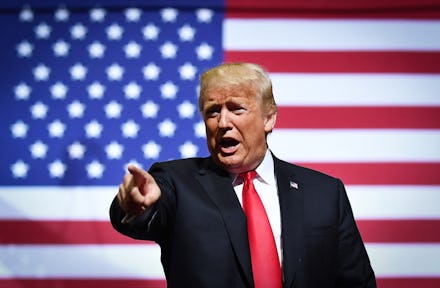Beyond a loophole: Expert says Trump’s tax practices were “brazen,” “aggressive” and “outrageous”

The shady tax practices on which President Donald Trump and his father, Fred Trump, built their fortune were notable for how “brazen” they were, according to a leading expert on tax law and policy.
On Tuesday, the New York Times published a comprehensive report on Trump’s financial history which found much of his wealth was built on loans from his father, as well as deceptive, and sometimes apparently illegal, financial maneuvers. It’s a damning report that torpedoed the image of Trump as a self-made billionaire that he’s presented to the American public for decades — and could even open the president up to political or legal inquires.
According to Steven Rosenthal, a senior fellow at the Urban-Brookings Tax Policy Center, while some of the practices outlined in the Times investigation weren’t all that different than the routine ways wealthy individuals avoid paying their full taxes, others stood out as exceptionally “aggressive.”
“Rich guys often reduce their tax liability,” Rosenthal said in a phone interview on Wednesday. “There are a variety of techniques ... [and] some can be more aggressive than others.”
Rosenthal singled out two of the practices outlined in the Times analysis as particularly “outrageous”: the creation of what the paper described as a “sham corporation” to mask financial gifts from Fred Trump to Donald Trump and his siblings, and the intentional mispricing of real estate assets that apparently allowed the Trumps to skirt millions in taxes.
“It’s the brazenness,” Rosenthal said of what stood out about the Trump family’s financial practices.
The Times report Tuesday shines a light both on how Trump, the wealthiest person to assume the presidency, made his fortune — and on the legal gray areas that allow the wealthy to avoid paying the full extent of their taxes, including through the creative exploitation of tax provisions and loopholes. Trump himself had defended his tax avoidance during his campaign, saying in 2016 that he had merely exploited loopholes that his opponent, Hillary Clinton, had failed to close while she was a United States senator.
“Why didn’t she ever try to change those laws so I couldn’t use them?” he said at a rally that fall, according to the Times. But according to Rosenthal, Trump appears to have done more than exploit “tax loopholes.”
“[Trump] was stretching what may have been a loophole beyond what anyone may have recognized,” he said.
Rosenthal added that the frequently blurry line between legal and illegal when it comes to tax law, along with an “understaffed and under-resourced” Internal Revenue Service, makes it difficult to catch all tax violations.
“It’s whack-a-mole,” he said.
While the IRS could pursue some of the potential fraud uncovered by the Times, it could be difficult to do so decades later, he added. In addition to finding evidence of ethically murky and sometimes potentially illegal tax and financial practices on the part of the Trumps, the investigation also found that Trump seems to have largely depended on his father for financial stability throughout much of his life — despite his claims of having been a self-made man.
A lawyer representing Trump denied the Times report and threatened the paper with legal action. Trump, in a Wednesday-morning tweet, slammed the “Failing New York Times” and called their story a “very old, boring and often told hit piece on me.”
“Never recovered from bad election call!” he tweeted, referencing his upset victory over Hillary Clinton in 2016.